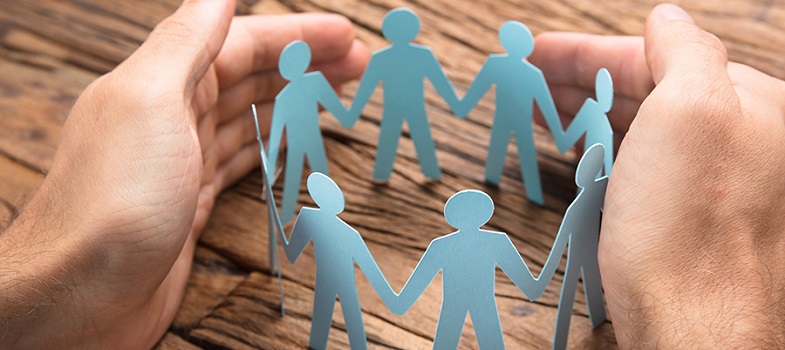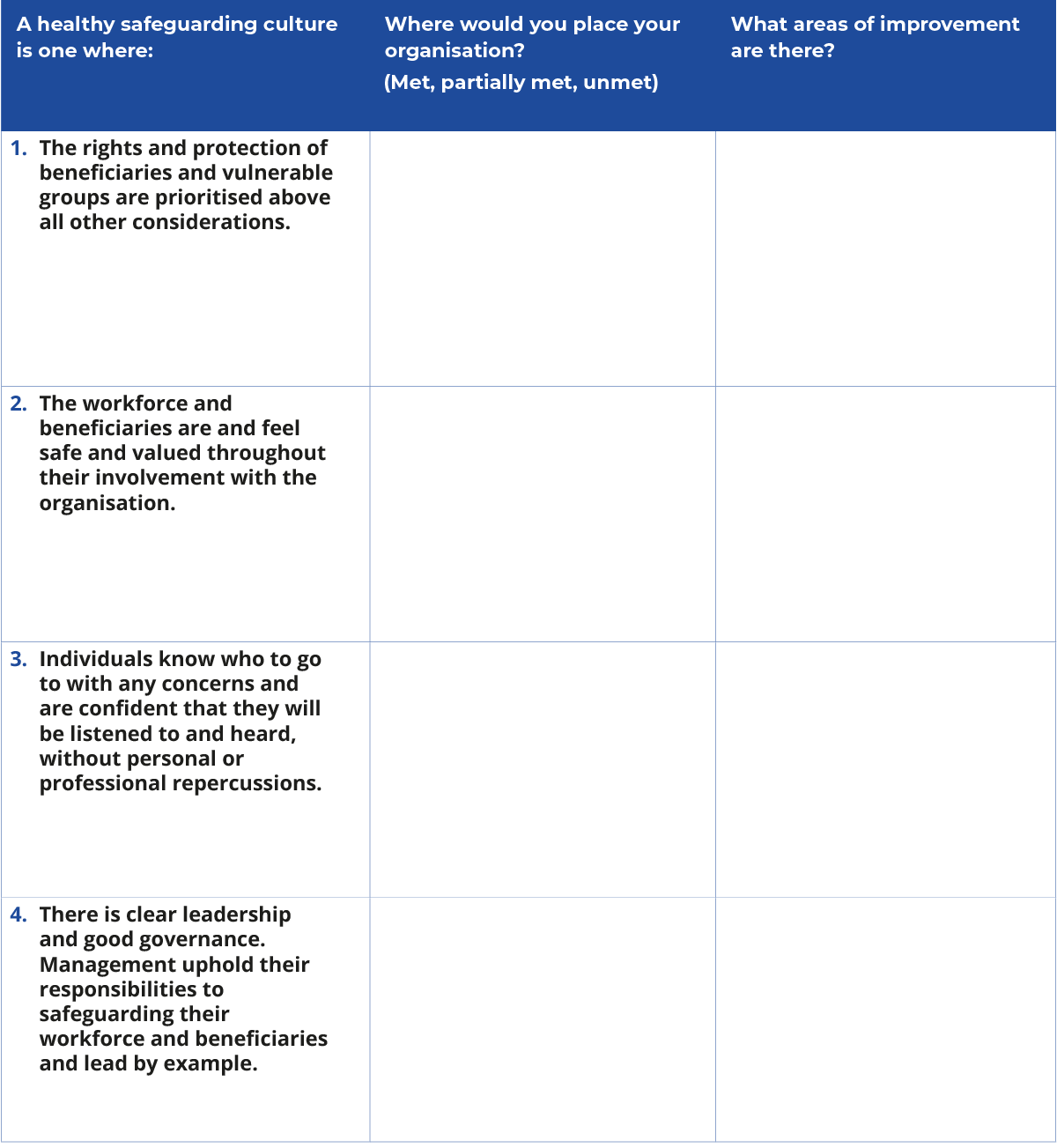0:00
SPEAKER: So, at MaSP, what are we actually doing as regards to safeguarding work? I know Phillipa had already made mention of what safeguarding is all about, but I want to put emphasis on it. Safeguarding is a process of promoting
the safety and welfare of people involved in the delivery or receipt of humanitarian aid and development assistance, protecting them from harm, including all forms of exploitation, abuse, and harassment. So, we have seen that in
our development work at MaSP, we have seen that it is important for all our members to know what safeguarding is all about.
0:46
And also, they should come up with a policy on their own terms, which is going to be a tool for them to use to raise awareness on child abuse and adult abuse. On all sorts of abuse.
1:01
We have embarked on organising trainings of trainers and we successfully had trainings in Blantyre, in the southern region, where we targeted members from the southern region. We are currently in Mzuzu also, conducting, carrying out
the same training. We have done this training successfully and with very positive feedback from members, who have embraced on this training and actually are coming up with their own safeguarding policies, which is going to be a
tool that these organisations are going to be using to raise awareness on child abuse. We have also created forums for member engagements to share experiences, and how they are managing their own organisations.
1:44
We believe that if we are able to share our experiences, and we are encouraging our members to share their experiences, we are going to curb the problems that are rising due to COVID-19. This is actually working very well because we
don’t really have to have face-to-face meetings, but we can have these meetings through other forums, like Zoom, like we are doing currently. So we are using WhatsApp groups, we are using Facebook, we are using all sorts of forums,
where we are actually encouraging our members to share their experiences and we can manage issues together, and help each other on how we can handle these issues that are arising due to COVID-19.
2:25
We’re also giving sensitisation messages through posters, t-shirts and flyers. As you have already seen in some of the pictures that we have taken of MaSP stuff, we had actually posted on different scenarios of safeguarding issues
to raise awareness, so that it would come up with good posters that would actually depict a clear message that would actually speak to people who would just look at it and they would actually message you or be seen on them. And
we have printed t-shirts, where we have given a message that will raise awareness on the issues of safeguarding so that people are aware that these issues need to be done and dealt with.
3:06
So, we also have come up with this safeguarding package, which has been distributed to all MaSP members. I’m happy to say that this package was in English, and we have translated it into Chichewa and also into Buka in two local languages,
and members are actually using these safeguarding packages. We have also put the same packages on our website, where members can easily access and download these messages and actually use these packages as they’re working on their
own safeguarding policies. We have made use of social media platforms as I’ve already mentioned, and we are also using our website to actually give out as much information as possible to all our members. Next slide, please.
3:52
Yes, but see, despite all these efforts we could still say that Malawi, as a country, we’re still facing a lot of challenges because of the COVID-19. A lot of safeguarding issues are coming up along, and it has affected greatly the
economy. Because businesses are not operating as before, they’re either working on limited profits, we have faced a lot of challenges as I have already alluded to. We have an issue of hunger, and we have an issue of access to health
services. In hospitals, there’s currently been a rule that there should be no guardians, yet the safeguarding policies are not enough to support all patients that are there.
4:39
Also, there’s not enough medicine in the hospital, as medicines can no longer be easily imported from outside. And also, alternative sources for medical health services are restricted, so if I was able to get medical services from
outside the country, because borders are closed, I am not able to do that. Also, there is an issue of risk allowance, that was actually a heated debate in Malawi, and we had demonstrations. And all of this was due to lack of appropriate
PPEs and some misunderstandings due to lack of, or misunderstanding, for example, there was an issue of masks. So people were not complying to wearing masks. They were not complying to hand washing because they didn’t have the
facilities. Next slide, please.
5:33
And further to the challenges due to COVID-19, we have seen that schools have been closed and children have been at home for over five months. So, you can see, from April to August, the schools have just been opened now and yet there
was limited home schooling due to issues that are at home. A lot of household chores that are being demanded on the children. And also, cases of unsafe abortions with over 10,000 girls being impregnated. These are incidents of
these girls going back to school because of the circumstances that they are in. Some of them have actually gone into early marriages. Yes, and lack of knowledge.
6:20
On lack of knowledge, I want to emphasise that some people do not believe that there is COVID-19 in Malawi. And because they don’t believe this COVID-19, they are not complying to the measures that the government has put forward. And
then, we do not have an alternative to how best can we deal with it. So, the question now I want to propose is, what is it that we can do to address all these challenges? I believe that there’s a need to increase awareness on COVID-19,
and to make people understand that it is real. Then, there should also be communities, institutions, where we could engage community leaders and provide appropriate training to them.
7:05
So, if we deliberately engage community leaders, they are the eyes of the communities and communities actually respect community leaders. So, if they have the right information, they will be able to impart the same knowledge to their
subjects. And we should also support PPEs. We need to provide hand-washing buckets and soap to communities because sometimes it’s just a lack of an incentive to buy a bucket. They are hungry and we expect them to buy soap to wash
their hands. It is not possible. So, if they’re provided with a bucket and soap, I believe that they would comply with the measures that are put in place, that they need to wash their hands with soap.
7:52
We need to establish a safeguarding sharing group where we talk over the issues, the emerging issues, the safeguarding issues, so that communities are able to open up and be aware of the issues that are there. And we need to raise
an awareness of issues of safeguarding and knowledge of COVID-19 within communities. I believe that if we are able to open up, one can be able to share information with an open mind, we’ll be able to fight this together and have
a better world. Thank you so much. [NON-ENGLISH] My presentation is here and some of the references there that can be used. Thank you.
Watch the video above about how safeguarding is being implemented in Malawi during the COVID-19 pandemic, presentation by Malawi Scotland Partnership (MaSP).
After watching the video, reflect and respond to the questions below in your learning journal:


